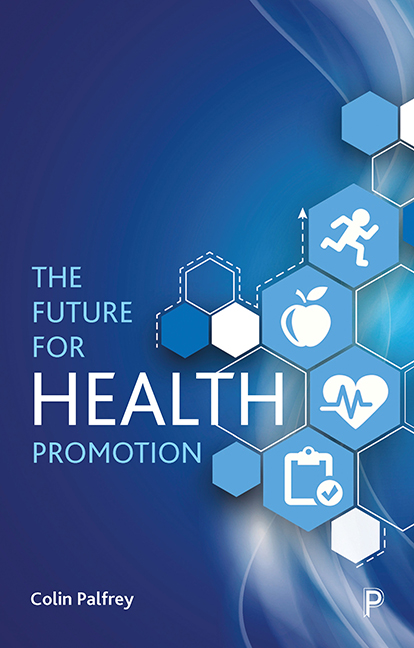Book contents
- Frontmatter
- Contents
- List of abbreviations
- Acknowledgements
- one Main themes
- two The origins of health promotion
- three Evidence base and methods for evaluation
- four Strategies for health promotion
- five Health economics and health promotion
- six Health promotion and mental health
- seven International perspectives
- eight The future for health promotion
- References
- Index
seven - International perspectives
Published online by Cambridge University Press: 12 April 2022
- Frontmatter
- Contents
- List of abbreviations
- Acknowledgements
- one Main themes
- two The origins of health promotion
- three Evidence base and methods for evaluation
- four Strategies for health promotion
- five Health economics and health promotion
- six Health promotion and mental health
- seven International perspectives
- eight The future for health promotion
- References
- Index
Summary
The global picture
Health promotion is a global enterprise. Three years after the establishment of the United Nations in 1945, the World Health Organization (WHO) was founded. Its remit is to help to promote and protect health and prevent and control disease throughout the world. It does this mainly by means of up-to-date information about the prevention and treatment of diseases and disseminating this information through its publications.
Forty years after the WHO was founded, in September 1978, the First International Conference on Primary Health Care was held in Alma Ata in the USSR. The conference called on all health and development workers and the world community ‘to protect and promote the health of all the people of the world’ (Declaration, p 1). The declaration stated that health is a state of complete physical, mental and social wellbeing, not merely the absence of disease or infirmity, and that it is a fundamental human right. It condemned the gross inequality in health status between people in developed and developing countries, and asserted that ‘the promotion and protection of the health of the people is essential to sustained economic and social development and contributes to a better quality of life and world peace’ (p 1). It also called for ‘the attainment by all peoples of the world by the year 2000 of a level of health that will permit them to lead a socially and economically productive life’ (p 1). This target was to be attained by redirecting resources currently being committed to armaments and weapons of war to health.
Clearly, this aspiration has not been fulfilled, and several further conferences since the Alma Ata Declaration have laid down internationally approved policies to maximise health resources and greatly improve the levels of health across the globe. One of the most influential of these was the Ottawa Charter for Health Promotion, published in 1986, which will be discussed shortly.
Thomas McKeown, a professor of social medicine at the University of Birmingham in the UK, introduced the notion of the social determinants of health (McKeown, 1972; 1976). As noted in Chapter Five, by increasing access to health services the National Health Service (NHS) actually increased demand.
- Type
- Chapter
- Information
- The Future for Health Promotion , pp. 173 - 202Publisher: Bristol University PressPrint publication year: 2018



